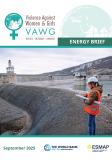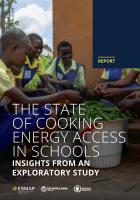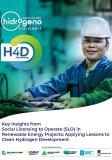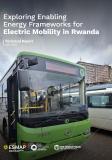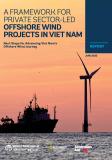Publications
Some 418 million children worldwide receive at least one school meal per day. However, in developing countries, most school meals are prepared using rudimentary, polluting biomass stove-and-fuel combinations, with unknown costs to the health of students and personnel, school finances, and the local environment. Scant data on the scale of the problem has limited the sector’s visibility, resulting in few investments being designed to meet the clean cooking needs of schools. The State of Cooking Energy Access in Schools: Insights from an Exploratory Study, a joint product of the World Bank’s Energy Sector Management Assistance Program (ESMAP) and the World Food Programme (WFP), uses primary and secondary data to examine the issue in schools of low- and middle-income countries, with a strong focus on Sub-Saharan Africa, where the access deficit is highest; findings from other regions, where available, are also synthesized. The findings reveal an urgent need to raise awareness among all stakeholder groups, generate reliable sector statistics, and promote cross-sector collaboration. Key recommended actions include stepping up governments’ role, leveraging lessons from the household cooking sector, and harnessing the institutional advantages of schools. The report will be of interest to government policymakers, development organizations, and sector practitioners.
Energy Sector Management Assistance Program (ESMAP).
The State of Cooking Energy Access in Schools - Insights from an Exploratory Study. ESMAP Paper. Washington, D.C. : World Bank Group. http://documents.worldbank.org/curated/en/099112923154518062/P1742320a92eaf04d0b62e045485bf0ccc0
